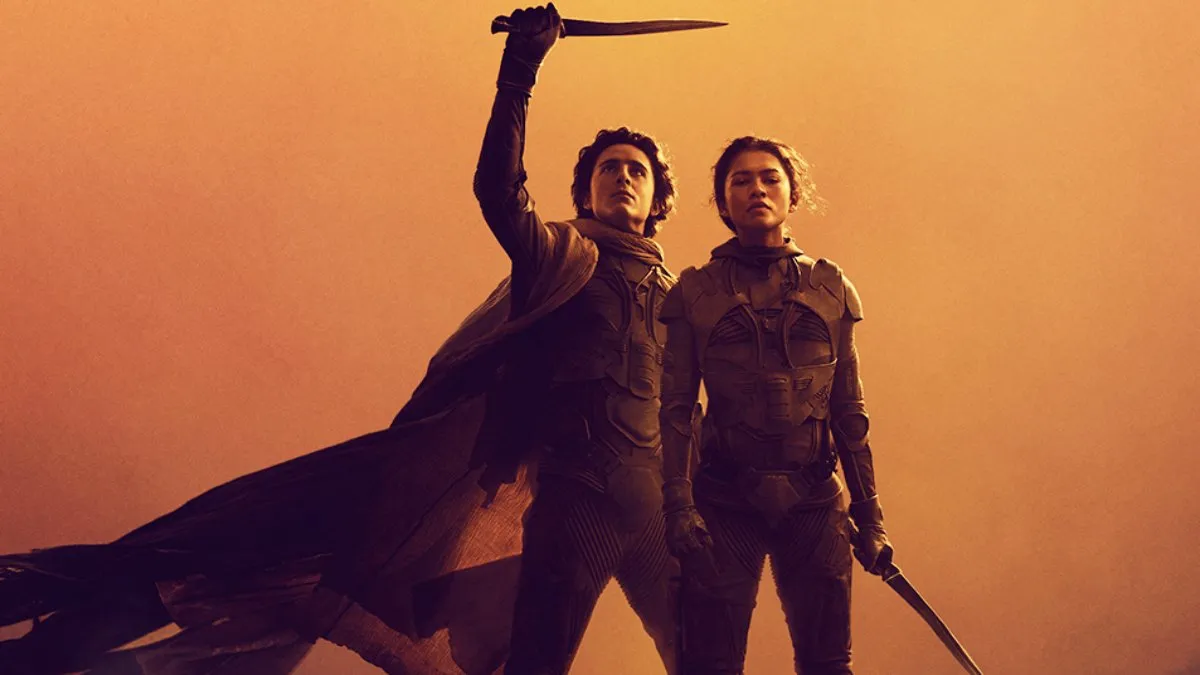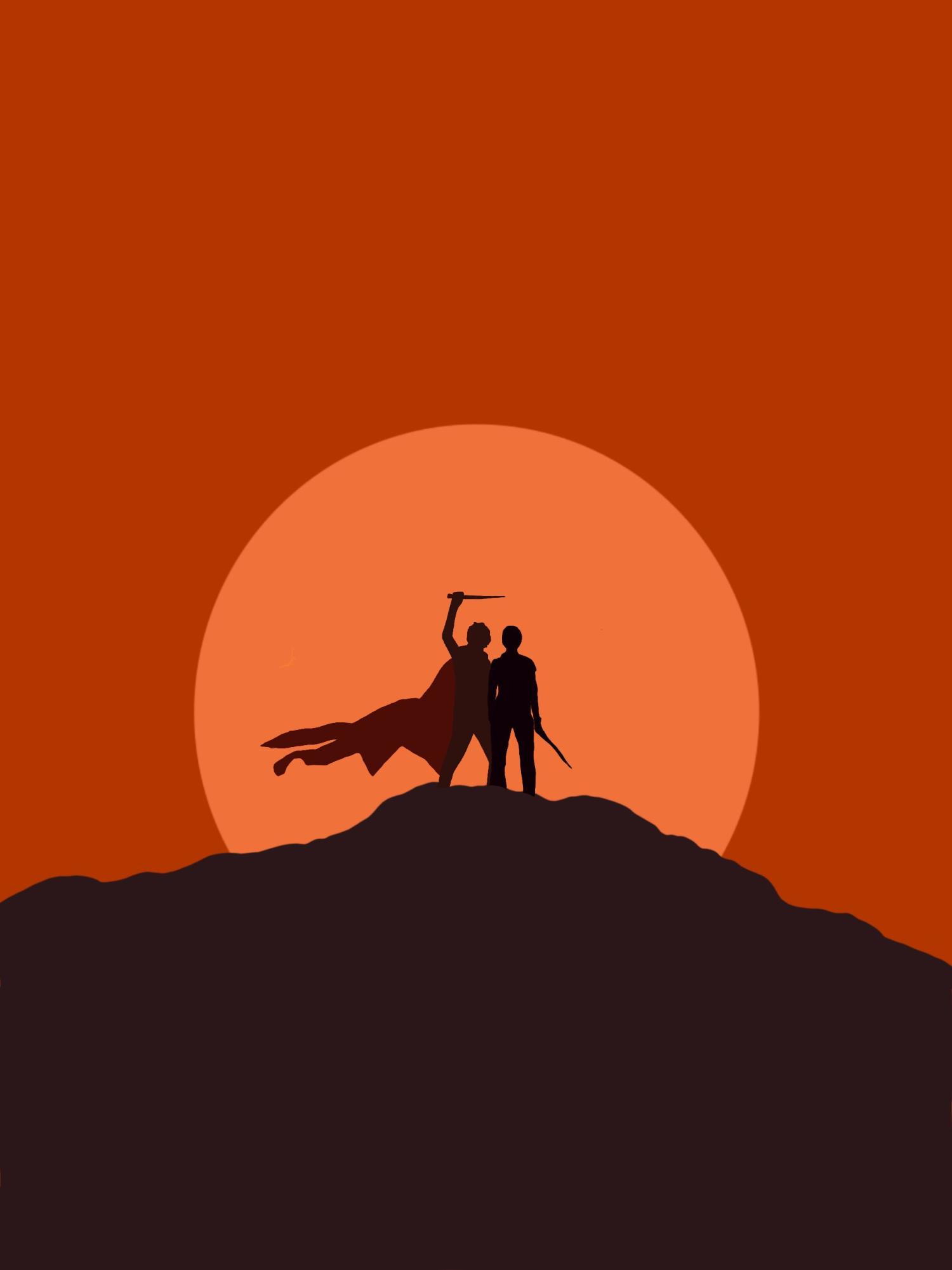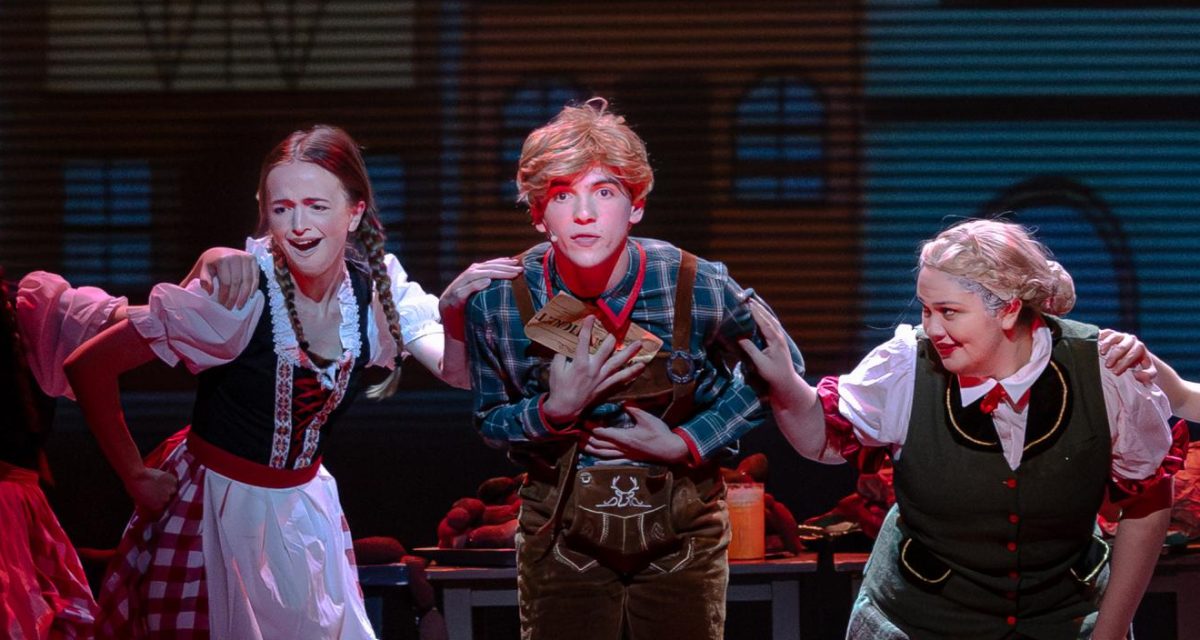In most cases, it’s assumed that sequels won’t live up to the original movie. Dune: Part Two, however, was an exception to this expected outcome. In its opening weekend, Dune: Part Two shined at the box office, earning $626 million in global box office after five weeks of release according to Variety.
Dune: Part Two follows Paul Atreides, played by Timothèe Chalamet, as he joins the Fremen in their fight against House Harkonnen, who harvest spice (a valuable resource) and wish to end the Atreides bloodline to ensure there is no competition for power. Paul is eager to learn the ways of the Fremen and fight beside them so he proves himself through combat and other challenges like riding a sandworm. His success among the Fremen makes more and more of them believe that he is their messiah or, as they more commonly call it, the “Lisan al Gaib” (“Voice from the Outer World”), tasked with the burden of saving Arrakis and leading the Fremen to freedom.
I thought that the plot of this movie was intriguing and clear for the audience, and also at a fast enough pace to keep all viewers interested. The quick changes from a slow scene to a chaotic one just gave this movie another level of complexity. In comparison, the slower pacing of Dune: Part One created an obstacle for viewers looking for a more action-packed film, which might have discouraged some from watching the sequel.
It’s no easy task to introduce an audience to a whole other world with cultures and customs so different from what many are used to. Just ask filmmaker David Lynch whose 1984 release of Dune was much anticipated and then much dismissed as a cinematic failure. Current Dune series director Denis Villeneuve, however, took on this challenge and undoubtedly triumphed. Every detail is fine-tuned and strategic. The language, clothes and the portrayal of religion were just some of the elements in this movie that brought it to the next level.
The cinematography was just another reason why this movie was so successful. The portrayal of this bare desert was crucial and done flawlessly. Through this use of cinematography, the audience is able to see the vastness of the desert, how there is nothing but sand as far as the eye can see–a never-ending sea that is incredibly isolating. The addition of dramatic music, mostly encompassing string and choral chants, added even more to the scenes, making them even more intense and suspenseful.

In some cases, big names in the acting industry are used to promote the movie, but the actors are not a good fit for their roles and serve as nothing more than a tool to bring more money in. But that is not the case in this movie. Some of the larger names in Dune: Part Two included Timothèe Chalamet, Zendaya, Austin Butler and Florence Pugh. These actors did not simply rely on their names for the success of the movie, and it was clear they were made for the roles and portrayed them incredibly well. Chalamet specifically stands out for the amazing way he portrays the character development of Paul, someone who never wanted power but took on the burden because he had to.
In Dune: Part One he is much more timid and unsure of himself, constantly questioning his abilities, but in Dune: Part Two viewers can see his confidence grow as he begins to master The Voice, a speaking technique that can manipulate the actions of all those who hear it, and transitions from not just a member of the Fremen but a leader of them. We see his roughness when leading the Fremen people and the way he commands with great authority, but also the tenderness and lovingness he portrays in scenes with Chani, played by Zendaya. The diversity of Chalamet’s acting skills and the contrast in the way he portrays himself works exceptionally well with the contrast in the cinematography.
The end of the movie, discussing the war that was still to come, was a clear indicator of another installment in this series. With the imminent bloodshed that is sure to come in the next movie, I have no doubt we will continue to see Paul evolving into his role as a leader, in an even more ruthless sense. But I hope that we still get those small caring moments with Chani to continue to humanize him and remind the audience of the boy who never wanted power but took the burden on anyway. With this hope of another movie comes high expectations for it to live up to Dune: Part One and Dune: Part Two, from the music and cinematography choices to the actors’ performances to the speed of the plot. At the rate this series is going, I have no doubt that Dune: Messiah will live up to its predecessors, if not surpassing them in success.








carlo h • Apr 1, 2024 at 2:05 pm
great use of diction and your thoughts about the draw of high-ranked actors were very observant
Delaney Lavelle • Apr 1, 2024 at 1:55 pm
“I liked your article because many of my friends have talked about this movie in a good way. I still haven’t seen the movie but I can’t wait to!”